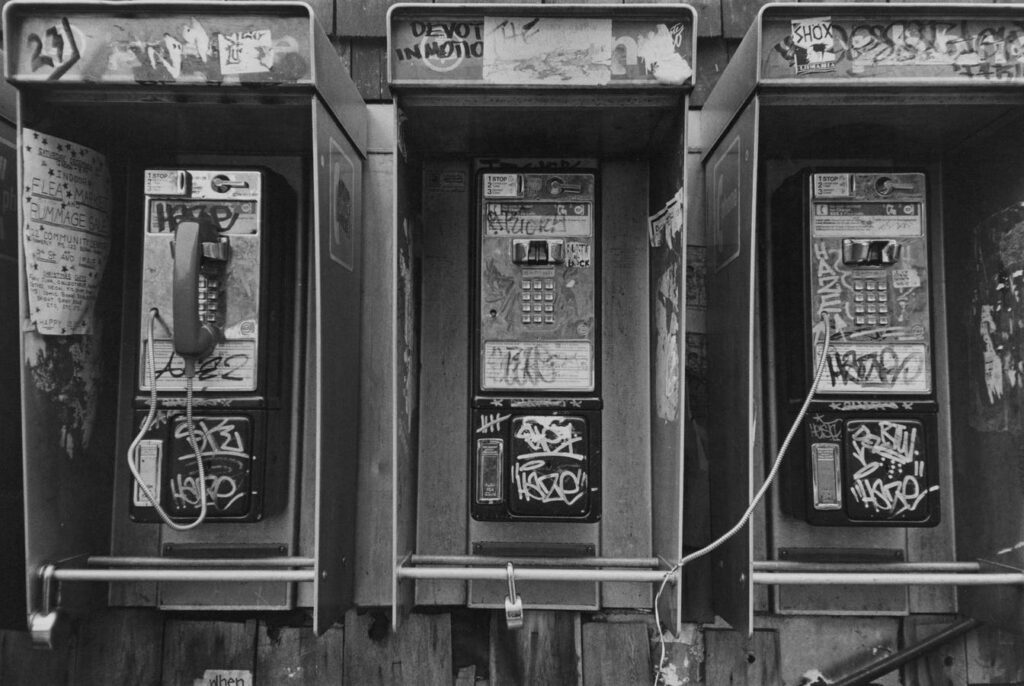The Federal Bureau of Prisons is changing its phone policy for Adults in Custody. During Covid, … [+]
Getty ImagesDuring COVID-19, the Bureau of Prisons (BOP) implemented a policy to allow phone calls to be free to adults in custody (AIC). Each month AICs could make up to 500 minutes of calls at no cost. However, with the end of the pandemic declared over a year ago and the BOP under budgetary constraints, that program is coming to an end.
According to the BOP, effective January 1, 2025, the Federal Bureau of Prisons (FBOP) is returning to its pre-pandemic phone and video service operations in addition to implementing a phone incentive in accordance with the Program Statement on First Step Act (FSA) Program Incentives (P5220.01).
The Bureau will provide AIC who are participating in Evidence-Based Recidivism Reduction (EBRR) programs under the FSA access to free phone minutes each month. Those AICs who chose not to participate in programming, will be responsible for the cost for phone and video minutes. As has been written here before, the FSA primarily benefits those who are minimum security with little chance of returning to prison. Many first time, non-violent offenders have relatively shorter sentences, under 6 years, while those who have longer sentences and are at higher security prisons are not eligible for FSA.
As an incentive for programming, all individuals participating in First Step Act (FSA) Evidence-Based Recidivism Reduction (EBRR) programs, regardless of their FSA earned time credit eligibility, will receive 300 free phone minutes each month at no charge for one month’s validation cycle with a limit of 30 minutes per day when their account revalidates for the month. However, if an AIC places a collect or prepaid collect call, the minutes will be deducted from their monthly limit and the called party will be charged.
The BOP is exploring an expansion of phone call minutes for FSA incentive earners, potentially increasing the total up to 510 minutes per month. This expansion would include the 300 free minutes and 210 additional minutes at the inmate’s expense, subject to addressing budget considerations and technological/ resource challenges.
The implementation of the FSA is in its 6th year and still the BOP program is evolving. The ability for AICs to call home is an important part of their rehabilitation and for easing the transition back to society, where most all will one day return. Contact with family not only offers opportunities to bond with those on the outside, but those connections are important for finding housing and work after prison. The BOP is also under pressure from groups such as the American Civil Liberties Union for keeping prisoners in institutions longer than the First Step Act law allows.
Many stakeholders and family members have expressed concern over this policy change. Rabbi Moshe Margaretten, President of Tzedek Association and an advocate for prison reform, provided a statement regarding the policy change:
“When the First Step Act was created, Congress included 510 minutes of additional phone use as an incentive for successful participation. This reward is especially important to individuals who are not eligible for release. It is also critical for those who have children — these are kids who yearn to speak with their incarcerated mothers or fathers. While we appreciate this policy update, it is insufficient and it is not what Congress intended with the First Step Act. Every inmate receives 300 minutes. These 510 minutes should be in addition to those 300 minutes — a total of 810 minutes. Otherwise, it is just an incentive of 210 minutes, not 510 minutes like the statute states. The BOP does deserve praise for making these 300 free minutes, and we are very grateful for that. The bill does not mention this idea and it is a great incentive that will help those with little funds.”
Non-FSA Incentive Earners: Individuals who do not earn an FSA phone incentive will be financially responsible for their phone use. When placing direct dial calls, users will be notified audibly of the applicable per minute rate (e.g., $0.06 per minute for domestic calls and international rates in accordance with Federal Communication Commission regulations). Domestic called parties who are unable to receive collect calls or who want to establish a prepaid account may contact ICSolutions (ICS) at 1-888-506-8407.
Recently, due to budget constraints, and to incentivize programming participation, the BOP decided to change its approach and will provide free phone calls only to those who are on the waitlist for, or are participating in, an EBRR. According to the BOP this is intended to incentivize programming and to allow FBOP to reallocate resources to other critical needs, including programming, staffing, and contraband interdiction.
In order to mitigate the financial impact on AICs that choose not to participate in programming and their families and loved ones, the discontinuation of free phone minutes is being timed in conjunction with recent per minute fee reductions mandated by the Federal Communication Commission (FCC). Effective January 1, 2025, new phone rates set by the FCC go into effect that reduce the call rates for AICs to $0.06 per minute for all audio communications and $0.16 per minute for video communications.
Not the New Years gift that many in prison were expecting.
Read the full article here


